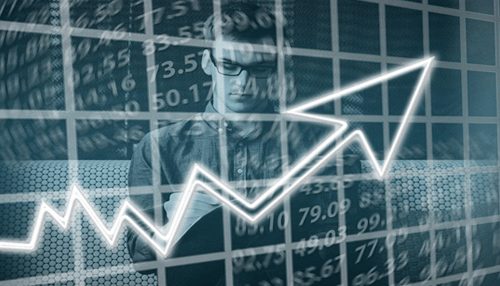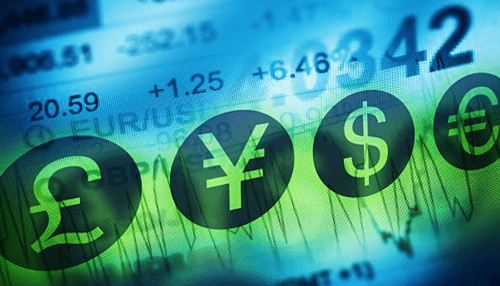Even if you’ve had zero interest in finance and the economy until now, chances are you’ve heard at least once about Forex. For those who have no clue about Forex basics whatsoever, it might sound like just another buzzword used by people who are interested in money matters. However, Forex is much more than that, and if you’re willing to delve deeper into the subject, you’ll discover a complex and fascinating environment that’s worth studying.
Beginners can be easily overwhelmed by the intricacy of the market as it takes time and research to get a grasp on how things work in this sector. But once you get to know the basics, learning more about Forex can turn into an addictive habit. That’s exactly what we’re striving to do here. Give you the basic information on Forex, so you can understand what it is and why it matters. Then you can decide for yourself if Forex is a system that you’d like to learn more about.
What is Forex?
That’s the million-dollar question: what is Forex? To put it simply, it also referred to as foreign exchange or FX, is a decentralized global market that allows banks, governments, financial institutions, international corporations, and individuals to trade national currencies against one another.
If that sounds a bit too fancy, we’ll explain it like this: Forex works by converting one currency into another. When you travel abroad and you exchange your national currency for the currency of the country you’re visiting, you are making a Forex transaction. So, it’s all about buying one currency and selling another concurrently at a specific exchange rate. Trading is always done in pairs, for example, EUR/USD which is the most popular pair in Forex.
The Lure of Profit
You shouldn’t assume that foreign exchange is limited to practical purposes only, such as traveling to a different country. There’s a large profit potential on the Forex market, with most transactions being conducted for financial profit. Traders buy a certain currency when the prices go down and they sell it when the prices go up again.
That way they’ll earn a nice profit if their predictions are correct and they wait for the right moment. It’s precisely this volatility that makes trading such a lucrative activity, but also a risky one.
The market is open 24 hours a day, 5 days a week and everyone can engage in trading in major financial centers around the world such as London, New York, Tokyo, Paris, or Sidney, with most operations being performed online. When the trading day ends in one time zone, it starts anew in another, so foreign exchange is very much an ongoing process.
Forex is the market with the highest liquidity in the world. Every day, trillions of US dollars are traded in the foreign exchange market by traders who are willing to take their chances to make a profit. The high chances of earning money by exchanging currencies is also why Forex attracts a lot of newbies to the trading game. Because of the high liquidity and the low barriers to entry, it’s vital that budding traders read up on the top Forex trading tips prior to putting their capital on the line. This will likely improve the quality of the trades made and reduce the overall risk profile, meaning you’ll be more likely to make profits consistently.
Opening an account is a simple and easy process, and most trading platforms also offer the possibility to open a free demo Forex account. That way new traders can get acquainted with the market and learn about the ins and outs of the trading platform before they start trading real money.
When did Forex Start?
The foreign exchange market is a fairly new financial sector compared to other markets. Some might argue that people have been exchanging currencies ever since the first currencies came to be, which is perfectly true. But the modern market as we know it today, with the possibility to exchange currencies from all corners of the world against each other whenever you want, through online operations, hasn’t been around for long.
If we try to trace the roots of the modern Forex market, we don’t have to go very far back in time. Modern Forex trading began in 1971 after the Bretton Woods system ended and the USA no longer backed and exchanged its currency for gold, allowing the US dollar to float freely against other currencies. The free-floating system marked the beginning of the Forex market nowadays.
Why Should You Care Forex?
You might wonder why so many people these days have a Forex fixation and why you should care about this market. The reasons are plenty, and some of them were mentioned previously, but we’re going to focus on a few key aspects here.
1. For one thing, foreign exchange is all around us, like it or not, and just as we mentioned previously, most of us are already taking part in it when traveling or when purchasing items from different countries. So why not take things one step further and learn how the market works? After all, the more knowledge you acquire about money matters, the smarter you’ll manage your finances.
2. Another reason to gain an interest in Forex is the market’s accessibility. Anyone with a reasonable knowledge of the Forex system can start trading currencies for profit, so this activity is not reserved for big players such as banks or powerful corporations. You can start trading online even if you’re not a skilled Forex trader or if you don’t have a large capital to invest.
3. Using FX trading platforms and software can make things infinitely easier if you want to get started with currency trading. It can be exhausting to do all the work yourself, especially as a newcomer. However, automated trading software can do all the work for you and help you trade like a pro, increasing your chances of making profitable transactions.
4. Just as with any form of investing, currency trading is a risky business. However, the market is heavily monitored and regulated by several regulatory bodies such as the SEC in the US, the FSA in the UK, and the CySEC in Europe, making it one of the safest markets for trading.



